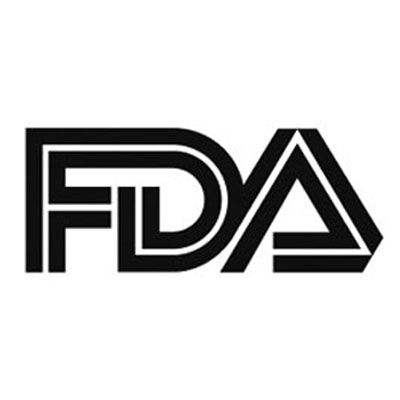FDA Grants Fast Track Designation to Magrolimab for AML and MDS
The FDA has granted a fast track designation to magrolimab for the treatment of patients with acute myeloid leukemia and myelodysplastic syndrome.

The FDA has a fast track designation to magrolimab (formerly known as 5F9) for the treatment of patients with acute myeloid leukemia (AML) and myelodysplastic syndrome (MDS).1
The fast track designation was granted as a result of the high objective response rate (ORR) seen in both patients with AML and MDS in a phase Ib trial.2
“We are pleased to receive Fast Track Designation for magrolimab in both MDS and AML, emphasizing the unmet need among these patients, and further equipping us to execute on our goal of delivering magrolimab as a promising new option to treating physicians,” Mark Chao, MD, PhD, founder and vice president of clinical development of Forty Seven, Inc, the company developing the agent, said in a press release. “We were encouraged by the initial data from our phase Ib clinical trial, which showed a 100% ORR in untreated patients with higher-risk MDS and a 64% ORR in untreated patients with AML, along with a rapid time to response. We look forward to continuing our productive dialogue with the FDA as we advance magrolimab through the clinic and finalize the design of our pivotal program in MDS.”
Magrolimab is a first-in-class monoclonal antibody that targets CD47 and is designed to block the “don’t eat me” signal from the SIRPα receptor on macrophages and induce tumor cell phagocytosis.1CD47 is a dominant macrophage checkpoint that is overexpressed in many cancer cells.
Findings from the phase Ib 5F9005 study (NCT03248479) were presented at the 2019 EHA Annual Congress.2The trial enrolled 34 patients with AML or MDS to receive magrolimab monotherapy or as a combination regimen with azacitidine. The patients with untreated AML who were ineligible for induction therapy (n = 15) and those with intermediate to very high-risk MDS (n = 9) received the combination regimen and the patients with relapsed or refractory AML (n = 6) or MDS (n = 4) received magrolimab alone.
Patients received escalating doses of weekly magrolimab and standard doses of azacitidine (75 mg/m2on days 1 to 7). A priming dose of 1 mg/kg magrolimab was given to prevent on-target anemia before escalating to 30 mg/kg weekly.
The median age of all patients was 73 years, and 62% of patients with AML were considered to have intermediate or poor cytogenetic risk; all of the participating patients with MDS had intermediate or high-risk disease.
Among the patients who received the combination regimen as frontline therapy, the ORR was 64% among the patients with AML and 100% among the patients with MDS. Eleven patients achieved a complete response. The time to response with the combination was 1.9 months.
In the group that received magrolimab monotherapy, the ORR was 10% and 70% of patients achieved stable disease.
Both the combination and the single agent were well tolerated and the maximum tolerated dose was not reached for magrolimab.
In the group receiving the combination regimen, one dose-limiting toxicity of grade 4 hemagglutination was observed that was resolved within 24 hours. One patient discontinued treatment due to an adverse event. No deaths or autoimmune adverse events were reported within the first 60 days of treatment.
The FDA has also granted magrolimab with a fast track designation for the treatment of patients with relapsed/refractory diffuse large B-cell lymphoma and follicular lymphoma. An orphan drug designation was also previously granted to the agent for the treatment of patients with AML.
Forty Seven is currently considering registration of magrolimab in combination with azacitidine to treatment patients with previously untreated higher-risk MDS and for the agent in combination with rituximab (Rituxan) to treat heavily pretreated patients with relapsed/refractory diffuse large B-cell lymphoma, according to a press release.
References
- Forty Seven, Inc. Granted Fast Track Designation for Magrolimab (5F9) for the Treatment of Myelodysplastic Syndrome and Acute Myeloid Leukemia [press release]. Menlo Park, CA: Forty Seven, Inc.; September 3, 2019. https://bit.ly/2jZy1oa. Accessed September 4, 2019.
- Sallman D, Donnellan W, Asch A. The first-in-class anti-CD47 antibody HU5F9-G4 is active and well tolerated alone or in combination with azacitidine in AML and MDS patients: initial phase Ib results. Presented at 2019 EHA Congress; June 13-16, 2019; Amsterdam, The Netherlands. Abstract S878.